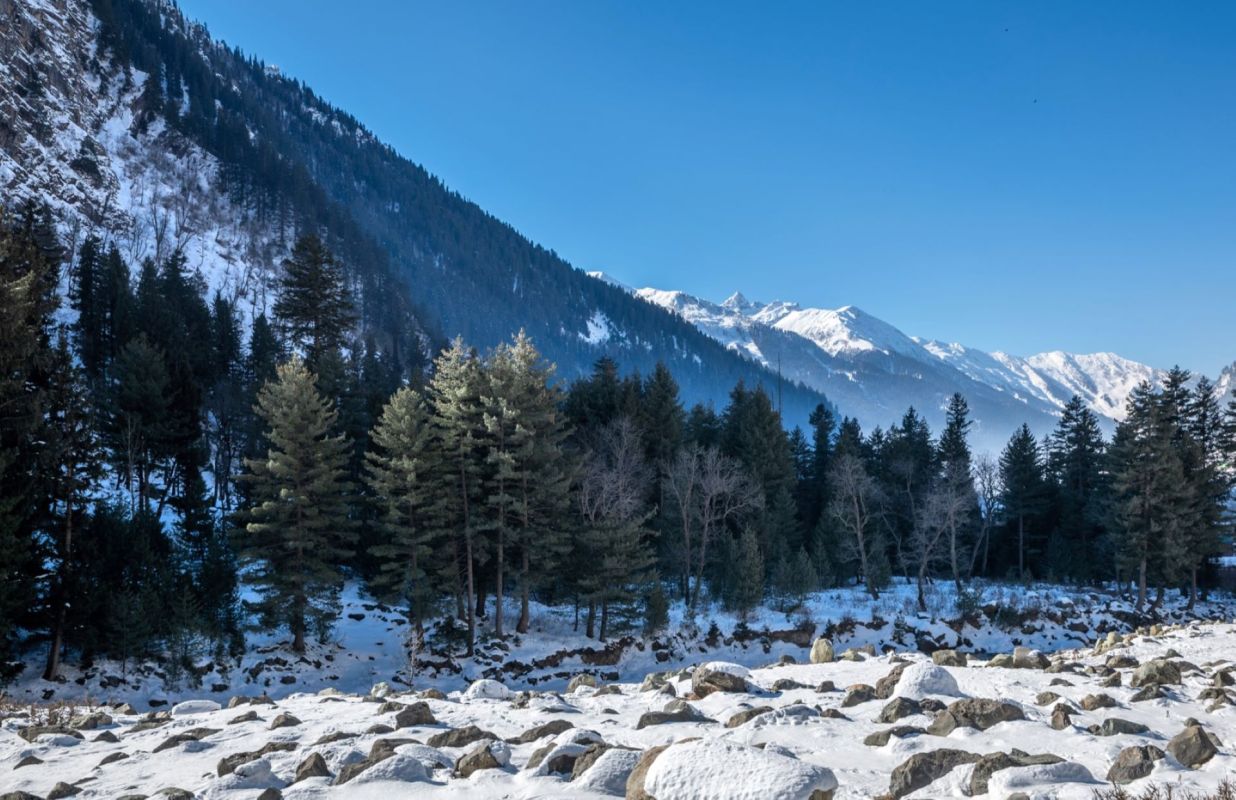Shounter Valley in Azad Kashmir, a region administered by Pakistan, is a place some have called "heaven on Earth" due to its majestic mountains, lakes, waterfalls, mountain passes, and glaciers.
But residents of the area fear that the very glaciers tourists flock to see may turn the region into hell on Earth if they continue to melt at the current pace.
What's happening?
Outside of flash flooding in 2010 that eroded land and damaged crops, homes, and infrastructure, Shounter Valley has largely avoided any catastrophic effects of climate change, but residents have good reason to be concerned.
In 2022, an area north of Shounter Valley, the Gilgit-Baltistan region, experienced triple the usual amount of glacial lake floods. Videos of the resulting flash floods went viral at the time. In Hassanabad village, residents captured video of a large bridge collapsing under the pressure of the raging water.
Why is this concerning?
The glaciers of northern Pakistan, of which there are more than 7,000, play a vital role in the lives of millions of people. Those living in the mountains depend on glacial lakes and the rivers they feed for fresh water, while downstream, the rivers are also used for hydropower plants and irrigation. This is true not only for Pakistan, but for the entire Hindu Kush Himalayan (HKH) mountain range region. The lives of billions of people are affected by the rivers fed by glaciers.
What's being done?
The HKH region includes parts of Afghanistan, Pakistan, India, China, Bhutan, Nepal, Myanmar, and Bangladesh. In the HKH Ministerial Mountain Summit 2020, the eight HKH countries signed a Ministerial Declaration, launching the HKH Call to Action, committing to sustaining the mountain environments and the livelihoods of those in the region affected by climate change.
The declaration emphasized the need for regional collaboration, despite deep-seated political tensions between some countries, and an effort to limit the overheating of our planet to 2.7 degrees Fahrenheit by 2100.
"The decade spanning 2020–2030 is critical for climate action," said the International Centre for Integrated Mountain Development.
It's widely accepted by world leaders that we must limit our planet's warming to stave off the worst effects of climate change.
Join our free newsletter for cool news and cool tips that make it easy to help yourself while helping the planet.









